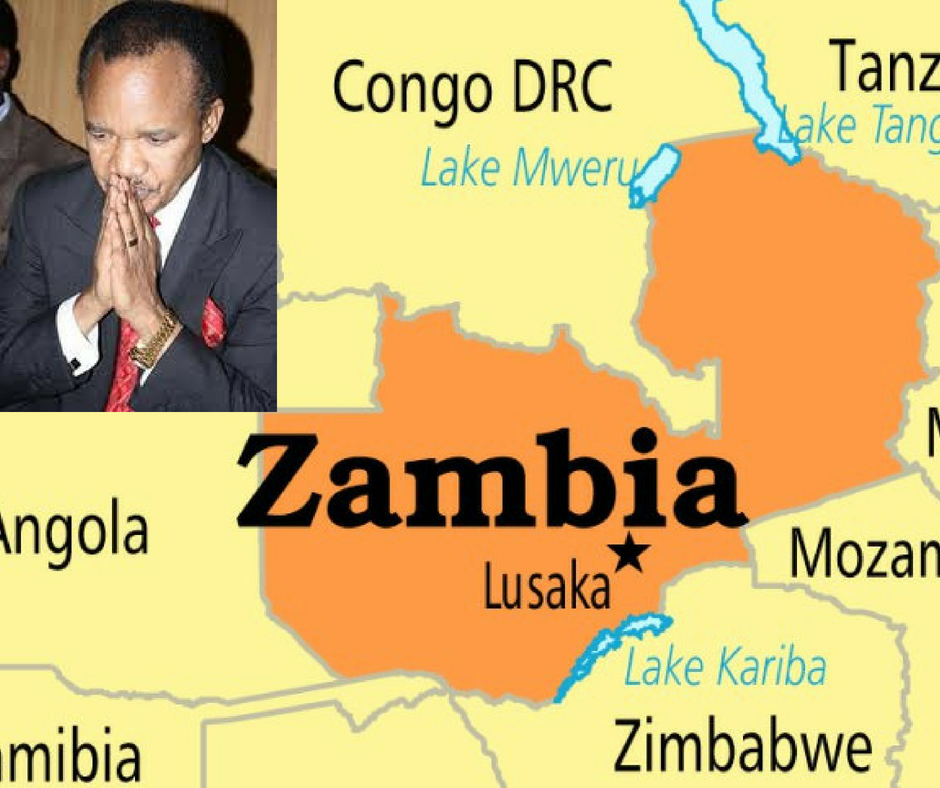The economic struggles of Zambia had been decades in the making. Zambia (Northern Rhodesia) was part of the federation of Southern Rhodesia and Nyasaland. The Federation of Rhodesia and Nyasaland, also known as the Central African Federation (CAF), was a semi-independent federation of three southern African territories – the self-governing British colony of Southern Rhodesia and the British protectorates of Northern Rhodesia and Nyasaland between 1953 and 1963. This unequal agreement channeled many of the resources from Northern Rhodesia and Nyasaland to Southern Rhodesia. In addition, newly independent Zambia, was punished with indirect sanctions for aiding liberation forces from Rhodesia (Zimbabwe) who were fighting for their independence and using Zambia as a base.
 By 1991, Zambia was struggling economically. The leader of the Congress of Trade Unions Frederick Chiluba was favored as the change agent that Zambia needed. Chiluba criticized Kaunda for running the country to the ground, food shortages, inflation, and corruption. In 1991, Frederick Chiluba ran for President and won as leader of the opposition with 76% of the vote under the Movement for Multi-Party Democracy (MMD). He served as President for two terms from 1991 – 2002.
By 1991, Zambia was struggling economically. The leader of the Congress of Trade Unions Frederick Chiluba was favored as the change agent that Zambia needed. Chiluba criticized Kaunda for running the country to the ground, food shortages, inflation, and corruption. In 1991, Frederick Chiluba ran for President and won as leader of the opposition with 76% of the vote under the Movement for Multi-Party Democracy (MMD). He served as President for two terms from 1991 – 2002.
When Chiluba became President he did not fully grasp the implications of western style economic policy on African countries like Zambia. He yielded to the recommendations of the International Monetary Fund (IMF) and sold many of the country’s assets for pennies on the dollar. The IMF and World Bank used the same false prescription of trade liberalization, deregulation, dismantling of the public sector and massive privatization which of course did not work because they never work.
Frederick Chiluba’s Economic Reforms as Prescribed by the IMF and World Bank:
- Sold Zambian copper mines for $6BN. To date, the same mines have generated more than $30BN for the foreign investors who purchased them
- GDP in 1991 when Chiluba took over was $3.379BN and had only risen to $4.194BN when he left in 2002.
- GDP per capita in 1991 when Chiluba took over was $410.07 and had declined to $377.13 in 2002 when he left office.
- Average net worth of Zambia remained unchanged from Kaunda to Chiluba
- Removal of subsidies on staple food
- He destroyed the local textile industry by lowering import tariffs on textile products and removing of tariffs on used clothes. As a result there was a massive increase of imported cheap second-hand clothing. They were more than 140 textile manufacturing firms in 1991 the number fell to just eight by 2002. Employment in the textile industry fell from 34,000 to just 4,000 during the same period.
- Formal manufacturing employment fell from 75,400 in 1991 to 43,320 in 1998.
- Paid employment in agriculture fell from 78,000 in 1990 to 50,000 in 2000.
Despite his campaign to build a better economy Chiluba’s legacy was more socio- political. He is remembered as the champion for democracy who risked his life to challenge Kaunda for a multi-party democracy. He brokered talks between Dos Santos and Savimbi in Angola and talks with warring factions in Congo. Chiluba is best known as the leader who declared Zambia a Christian nation but when he left in 2002, he had no economic legacy.
Chiluba is best known as the leader who killed the goose that lays the golden egg. He sold revenue generating assets for human rights and peace what he got instead was the legacy as the man who sold off his country’s wealth for a cup of soup and made his fellow Zambians poorer than before. Chiluba never comprehended that the wealth of Zambia could only be realized though the ownership and good management of those resources.





2 responses to “How Frederick Chiluba was Swindled by the IMF and World Bank”
I have never heard anyone show how bad chiluba really was for Zambia. Its chilling.
Our leaders must be judged on how much wealth they create for Africans not investors or foreigners. They never pay taxes anyway .